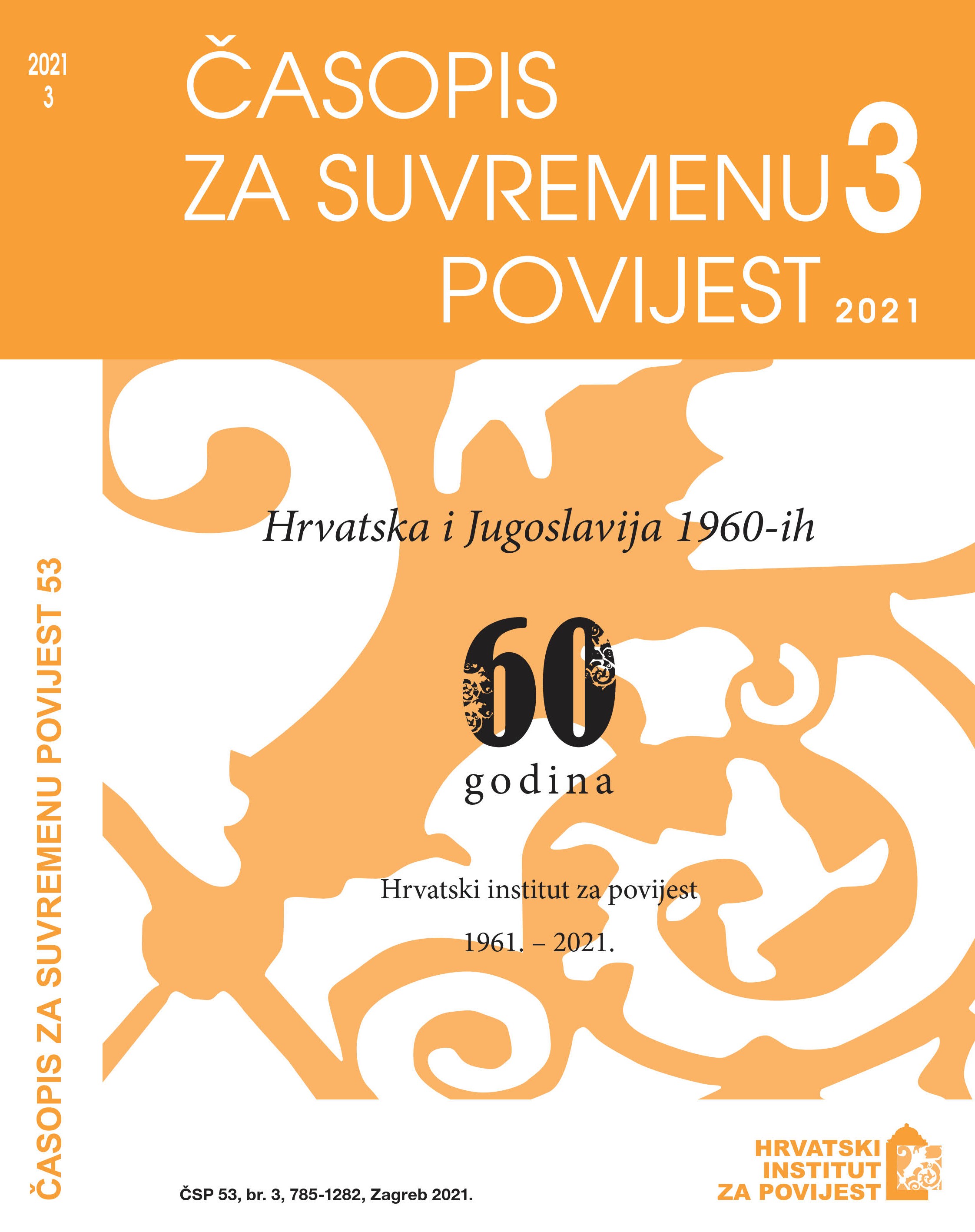Kultiviranje sociokulturnoga identiteta Bosne i Hercegovine kroz jezičnu politiku 1965. – 1973.
Cultivating the Sociocultural Identity of Bosnia and Herzegovina Through Language Policy, 1965–1973
Author(s): Sabina VeladžićSubject(s): Language studies, Language and Literature Studies, Cultural history, Post-War period (1950 - 1989), History of Communism, Identity of Collectives
Published by: Hrvatski institut za povijest
Keywords: Bosnia and Herzegovina; Bosnian-Herzegovinian standard language expression; discourse; literary language policy; Srđan Janković; symposium ‘Linguistic Tolerance in Education (in the Schools of the Soc
Summary/Abstract: In the 1960s, Bosnia and Herzegovina was a peripheral Yugoslav republic, lacking a distinctive cultural identity. In fact, advocates of Serbian-Croatian cultural unity perceived it as a mini Yugoslavia, the central part of the so-called Serbian-Croatian cultural space, in which the process of cultural rapprochement and integration of the Serbia and Croatian nations was to occur. The political leadership that came to power in Bosnia and Herzegovina in the 1960s wanted to change this ideological perception of their republic and establish its distinctive cultural identity as a support to its political identity and socio-political stability. Therefore, in the mentioned period, the cultural intelligentsia was encouraged towards a systematic, organised, and institutional production of discourse on the historical, cultural, literary, and linguistic identity of Bosnia and Herzegovina and the national identity of Muslims. All of this represents the inception of the Bosnian-Herzegovinian socio-cultural policy, whose important segment was literary-linguistic policy, initiated with the publication of the ‘Declaration’ and ‘Suggestion’, which intensified the Serbian-Croatian cultural dispute in Yugoslavia and highlighted the concept of national cultural unity. In this way, Bosnia and Herzegovina was threatened with destabilisation and social and cultural disintegration. Therefore, the republican leadership initiated the process of forming literary-linguistic principles, the most important of which was the existence of only one language in the Republic that was shared by all nationalities living inside its borders, and of standardising the Bosnian-Herzegovinian norm in public space. Public discussions about the linguistic identity of Bosnia and Herzegovina were organised (e.g. the ‘Symposium on Linguistic Tolerance’), a language institute was established as an institutional starting point for the scientific grounding of the Bosnian-Herzegovinian standard language expression and a discourse about it was developed, the publication of orthography manuals was planned, etc. The dynamics of Bosnian-Herzegovinian linguistic policy followed the dynamics of the Croatian linguistic and cultural separation. After the end of the Croatian Spring, a certain impasse regarding the realisation of this policy ensued, partially due to the repositioning of the power relations of the conceptual forces, thanks to which the linguistic centralists who advocated Serbian-Croatian unity regained their influence. The Council of Mostar, which was organised with the goal of evaluating the achieved results, pointed to the fact that, in the 1967–1973 period, the linguistic policy of the Bosnian-Herzegovinian leadership had had a very weak impact on the socio-political reality of Bosnia and Herzegovina as well as on the creation of a separate cultural identity of the central Yugoslav republic.
Journal: Časopis za suvremenu povijest
- Issue Year: 53/2021
- Issue No: 3
- Page Range: 989-1021
- Page Count: 33
- Language: Croatian

